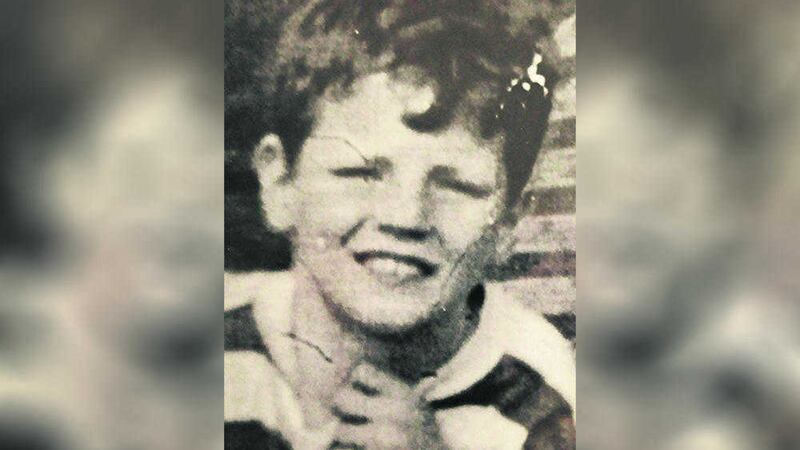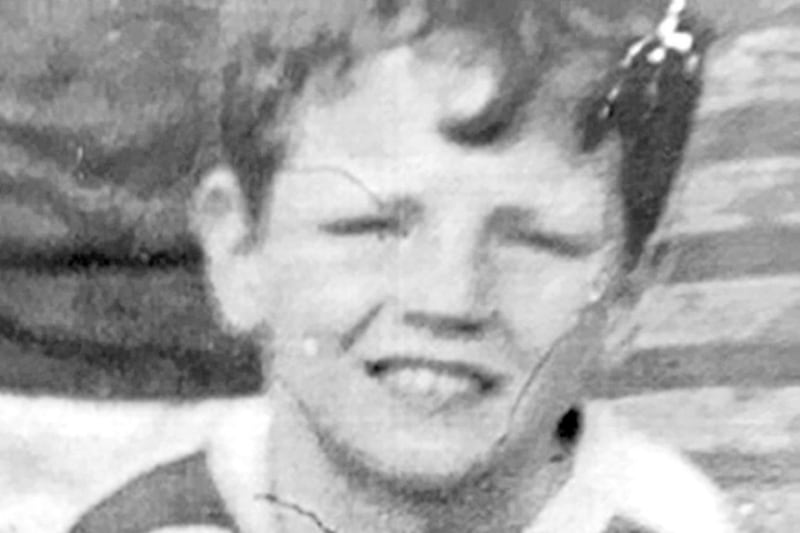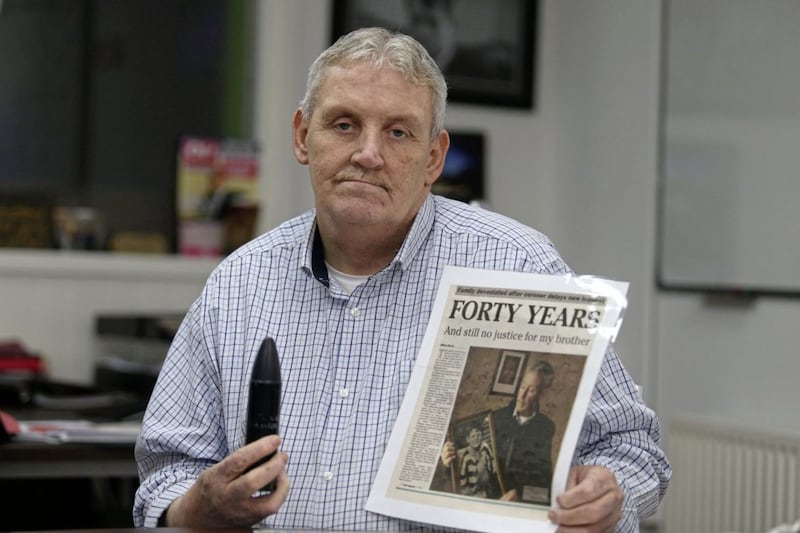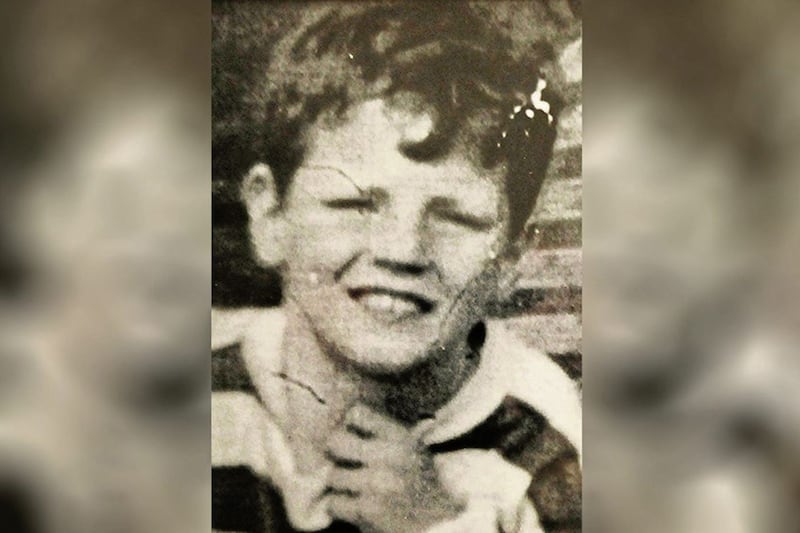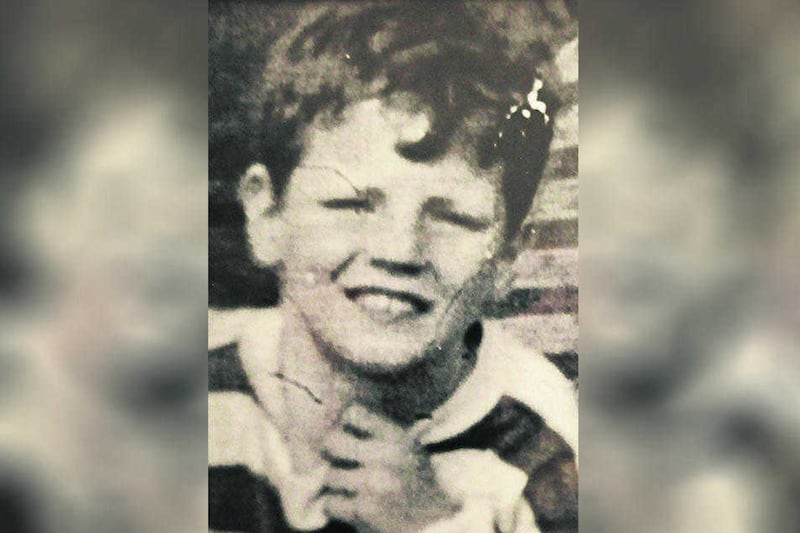THERE was "no reason" to the fire rubber bullet that struck and killed a schoolboy in west Belfast over 40 years ago, a coroner's court has been told.
Even though young children were throwing stones at an Army vehicle, eyewitness Noel Loughran said there was absolutely no threat to soldiers.
He told Belfast Coroner's Court: "In my opinion there was no reason for it to happen."
The former roofer and glazier was giving evidence at the inquest for Francis Rowntree.
The 11-year-old died two days after he was hit on the head by a rubber bullet while walking through the Divis Flats complex close to Belfast's Falls Road in April 1972 – one of the most turbulent years of the Troubles.
The case is mired in controversy with disputed claims on whether the boy was hit directly or injured by a ricochet, and if the rubber bullet had been doctored to make it potentially cause more harm.
Mr Loughran, who was in his mid-20s at the time, was left in a state of shock after seeing a young child being hurled into the air by the force of the shot.
He never told anyone about what happened and only came forward after reading about the inquest on Teletext.
"It was like something from a scary movie, what I saw," he said.
"I was so shocked. Walking up the street, walking home to get your dinner you do not expect to see anything like that. It was a horrible thing to see."
The court heard Mr Loughran had been making his way home from work along Divis Street when he came across a group of young children, estimated to be aged about eight years old, throwing stones at an Army Saracen, then running towards the vehicle to retrieve them.
He said there were no adults in the vicinity, adding: "They were only small children and only throwing stones. I could not see any threat at all."
After a short time, the rear slots of the vehicle were opened and the barrel of a baton round gun was pointed at the children, Mr Loughran claimed.
"What I described happened in a second or two," he said.
"I heard a loud bang. One child was hit. He was off the ground - his feet and legs were up in the air pointing at the sky but his whole body was off the ground.
"Once I saw the child, I immediately turned away and I never saw anything after that."
It was obvious the child had been hit in the upper body area, the court was told.
Although he heard through media reports that Francis Rowntree had died, Mr Loughran never made any statements to investigators until last week.
"I was in shock for days after," he added.
"When I heard the child had died, I felt very guilty. I kept saying 'could I not have helped' but at the time I was in complete shock."
Earlier, the inquest heard how the soldier who fired the baton round was never told the weapon was potentially lethal.
The retired sergeant major, known only as Soldier B, said rubber bullets were generally fired to disperse aggressive crowds.
When asked by a Ministry of Defence barrister if he knew they could kill, he said: "I suppose common sense would tell you that depending on how or where they were used, it may well be (lethal).
"But, as a general rule, no. It was to incapacitate or drive back."
The former soldier, whose identity is protected by a public interest immunity (PII) certificate, was giving evidence via videolink from an undisclosed location.
He served with the Royal Anglian Regiment and was on his first tour of duty in Northern Ireland based at Albert Street Mill, in the heart of west Belfast.
At the time, he had responsibility for distributing ammunition to the troops in his company and had never known a baton round to be altered.
He had also never engaged in the practise, he told the court.
Although Soldier B has no memory of the incident involving Francis, he described the difficulties in trying to distinguish between those participating in a riot and curious onlookers.
He said: "In those circumstances it was extremely difficult. When you are being pelted with varying missiles the group is a group. You are not in a position to identify one that's watching and one that's actually throwing things.
"It is a general thing -- almost impossible, I would say, to identify. It is a group."
An investigation by the now defunct Historical Enquiries Team concluded Francis Rowntree was an innocent bystander.
The hearing continues.
